Politics
/ArcaMax

Trump visits police, troops in D.C. after suggesting he would patrol streets
Donald Trump is not quite the patrolman in chief, but he did meet Thursday with personnel implementing his law enforcement crackdown inside Washington, D.C.
In his showman’s fashion, he had suggested earlier in the day that he would walk the beat with police officers and National Guard members who have been patrolling the city’s streets ...Read more

Supreme Court lets US cut millions of dollars in NIH grants
A splintered U.S. Supreme Court let the Trump administration at least temporarily cut off millions of dollars in medical research grants that government officials say don’t align with the president’s policies.
The justices partially put on hold a federal trial judge’s decision that the National Institutes of Health acted in an “...Read more
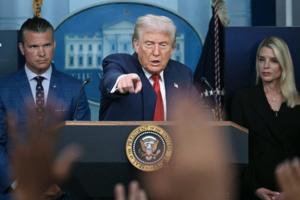
Trump plans ride-along with troops in Washington, D.C., crackdown
President Trump said he’s planning to ride along Thursday night with troops patrolling Washington, D.C., as part of his federal crackdown.
“I’m going to be going out tonight, I think, with the police and with the military,” Trump told conservative commentator Todd Starnes. “So we’re going to do a job. The National Guard is great. ...Read more
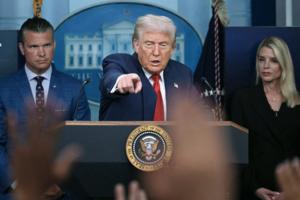
Trump on patrol: President says he will hit D.C. streets amid federal policing takeover
WASHINGTON — President Donald Trump will get a firsthand look at his federal takeover of policing in the District of Columbia when he heads out on patrol Thursday evening with law enforcement and military personnel.
Trump made the stunning announcement during a call-in segment to a conservative radio program, telling host Todd Starnes, “I�...Read more
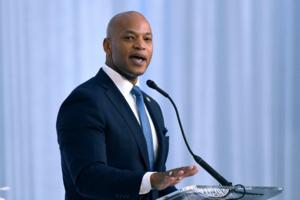
Maryland Gov. Wes Moore to President Trump: 'Keep our name out of your mouth'
BALTIMORE — Gov. Wes Moore called out President Donald Trump by name Thursday, saying during a speech before the demolition of Pimlico Race Course that the president should keep Baltimore’s “name out of your mouth.”
Acknowledging progress the city has made in the past couple of years, including securing a 30-year lease for the Orioles, ...Read more
Iran's freeze on nuclear inspections prompts UN-US crisis talks
International Atomic Energy Agency officials will travel to Washington next week to confer with the U.S. as concerns grow about their inability to account for Iran’s stockpile of near-bomb grade uranium, according to diplomats with knowledge of the situation.
The trip has been planned after IAEA Director General Rafael Mariano Grossi’s top...Read more
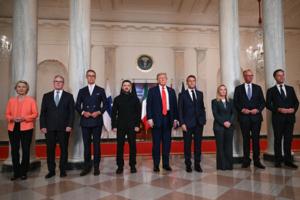
Editorial: Allies to the rescue -- European leaders try to keep Trump on the correct side in Ukraine/Russia war
It’s not often that you have eight European leaders, including one whose country is at war, descend on Washington in as close to an unplanned snap visit as you can get. Let’s hope that the White House visit convinced the White House resident of the importance of the moment.
Monday afternoon, Ukrainian President Volodymyr Zelenskyy was ...Read more

Commentary: Is Trump normalizing military occupation of American cities?
President Donald Trump’s military interventions in Los Angeles and Washington, D.C., foretell his plan for other cities.
The Washington Post recently reported on the Pentagon’s plans for a “quick reaction force” to deploy amid civil unrest. And, broad mobilization of the military on U.S. soil could happen under the Insurrection Act, ...Read more
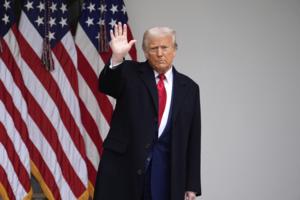
Trump plans executive order on flag burning, NewsNation reports
President Donald Trump plans to issue an executive order on flag burning, NewsNation reported, a move that aims to crack down on burning the American flag without running afoul of a 1989 Supreme Court decision that ruled doing so was protected speech.
Under the order, set to be signed Thursday, the Justice Department would review cases ...Read more
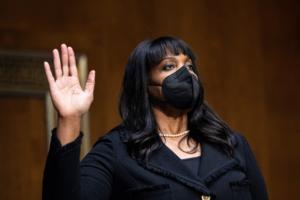
Fed's Cook says she won't be bullied into stepping down
Federal Reserve Governor Lisa Cook signaled her intention to remain at the central bank, defying calls for her resignation by President Donald Trump over allegations of mortgage fraud.
“I have no intention of being bullied to step down from my position because of some questions raised in a tweet,” Cook said in an emailed statement via a Fed...Read more
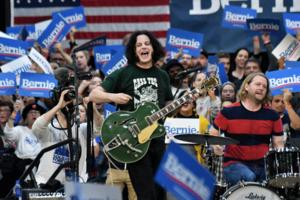
Jack White responds to insults, says Trump 'masquerading as a human being' in lengthy post
DETROIT — Jack White is doubling down — tripling down? Quadrupling down? — on his criticism of President Donald Trump.
In a lengthy Instagram post on Wednesday, the White Stripes rocker — who was called "a washed up, has-been loser" by White House Communications Director Steven Cheung on Tuesday — blasted Trump and his administration,...Read more

Longtime 'All Things Considered' host leaving NPR after Trump cuts
Veteran NPR host Ari Shapiro is saying goodbye to the network and All Things Considered, the latest high-profile departure following the move by President Donald Trump administration’s to defund public media.
But the move to kill federal funding to the Corporation for Public Broadcasting isn’t the reason Shapiro said he leaving the network ...Read more

Immigrants seeking legal work, citizenship now subject to 'anti-American' screening
Immigrants seeking a pathway to citizenship or a legal right to work in the United States will now be screened for “anti-American” behavior, the Trump administration said Tuesday, in a move that could affect thousands of Florida residents.
The announcement raised concerns about the subjective nature of the new policy, which will be a heavy ...Read more
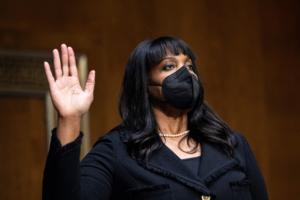
Trump demands Fed governor Lisa Cook resign over 'mortgage fraud' claim
President Trump Wednesday called on Federal Reserve governor Lisa Cook to step down over claims of “mortgage fraud” as he presses his feud over economic policy with the central bank.
“Cook must resign, now,” Trump wrote on his social media about Cook, a member of the Fed board.
Trump cited a letter from Federal Housing Finance Agency ...Read more

Trump appointee overseeing suit against Maryland judges urges 'judicial independence'
The U.S. district court judge hearing the Trump administration’s rare challenge to the authority of federal judges in Maryland has long emphasized judicial independence, calling it “fundamental to our rule of law.”
Judge Thomas Cullen — who is overseeing the administration’s pending lawsuit against all 15 Maryland federal judges — ...Read more
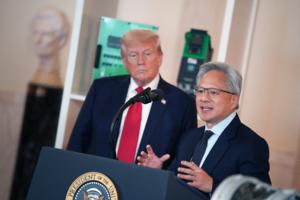
Trump targets corporate America to achieve economic and foreign policy goals
He didn’t campaign on it. It wasn’t even broached during his first administration. He criticized his predecessor for it.
But this month President Donald Trump made clear that he’s willing to use the full force of the US government to directly intervene in corporate matters to achieve his economic and foreign policy goals.
Trump, backed...Read more

Anti-Massie PAC pushes poll showing Northern KY congressman in trouble
President Donald Trump has made yet another swipe at fellow Republican and Northern Kentucky Congressman Thomas Massie.
This time it came in the form of a poll posted to Trump’s Truth Social network late last week.
Trump posted a poll of 500 likely GOP primary voters in Massie’s 4th Congressional District, showing his support slipping ...Read more
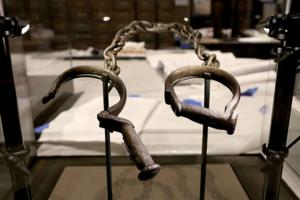
Trump to expand push to whitewash 'woke' museum exhibits on slavery
President Donald Trump reportedly plans to expand his push to whitewash “woke” museum exhibits on slavery and American history beyond the Smithsonian.
After Trump tweeted that the Smithsonian is too focused on “how bad slavery was,” the White House said it would eventually seek to use its power over funding to force other museums to toe...Read more

After a disastrous Alaska summit, a feeble Trump looks poised to complete his sellout of Ukraine
President Donald Trump’s Alaska summit with Russian tyrant Vladimir Putin was an epic failure on several fronts.
Now, he appears poised to complete the sellout of Ukraine. In doing so, he will abandon Europe and open the door for China to invade Taiwan. Worst of all, Trump continues to show the world that he is a paper tiger.
Could Trump ...Read more

Trump's claim of fighting antisemitism at UCLA is a dangerous charade
Days after UCLA settled a lawsuit brought by three Jewish students and a Jewish professor alleging antisemitism, the Trump administration announced that it would suspend $584 million in federal research grants to the institution, alleging failure to “promote a research environment free of antisemitism.” Pressing that case, the administration...Read more
Popular Stories
- After a disastrous Alaska summit, a feeble Trump looks poised to complete his sellout of Ukraine
- Top candidates for the US House in Illinois' 2nd, 7th, 8th and 9th districts for the 2026 election
- Trump's claim of fighting antisemitism at UCLA is a dangerous charade
- Commentary: Is Trump normalizing military occupation of American cities?
- Editorial: Allies to the rescue -- European leaders try to keep Trump on the correct side in Ukraine/Russia war






















































